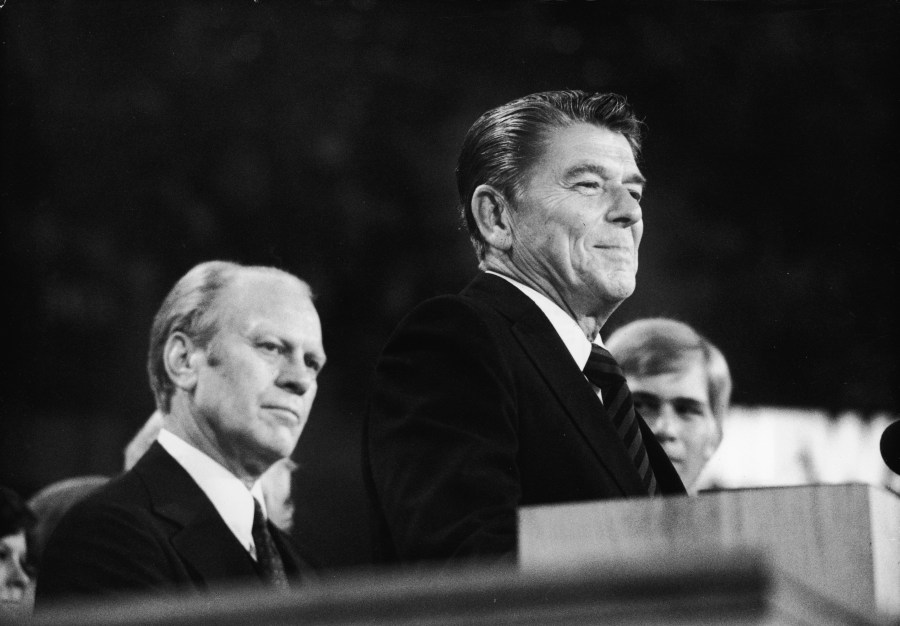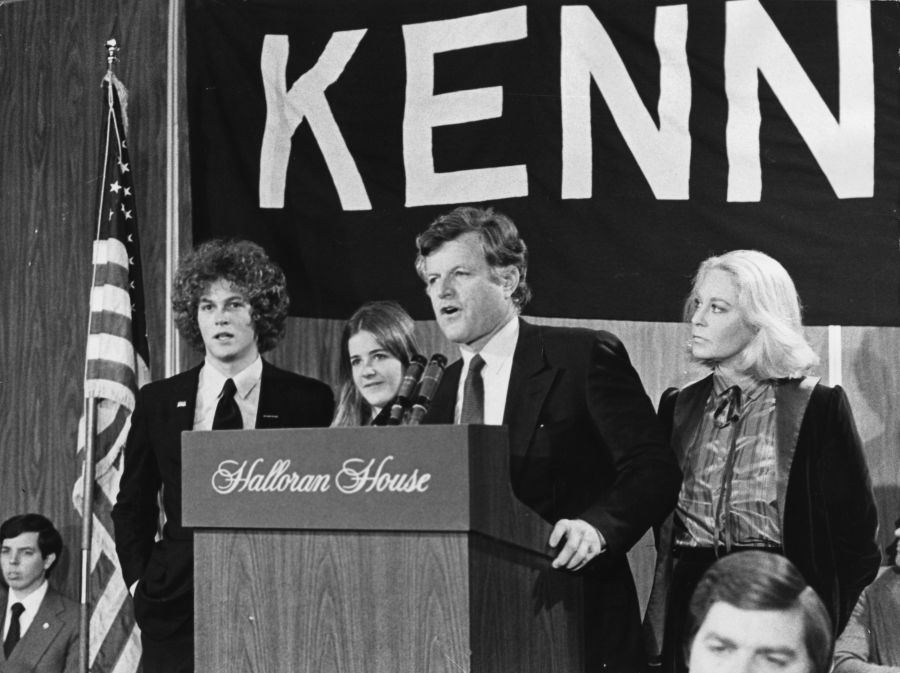(NewsNation) — No sitting president has lost their party’s nomination to a primary challenger in modern U.S. history, but a few serious contenders have left their mark on presidential races.
Conservative commentator Pat Buchanan was the last major opponent to do so. In 1992, he earned nearly a quarter of votes across state primaries, despite losing each of those contests to President George H.W. Bush.
An incumbent president hasn’t lost a state primary contest since 1980 when Massachusetts Sen. Ted Kennedy defeated President Jimmy Carter in several races before ultimately failing to win the nomination.
Today, President Joe Biden is facing challenges from Robert F. Kennedy Jr. — an environmental lawyer and nephew of President John F. Kennedy — as well as author Marianne Williamson.
So far, neither candidate has gained enough ground to threaten Biden’s claim to the nomination, but Kennedy has secured a noticeable following.
“Robert F. Kennedy Jr. has generated an extraordinary amount of interest for a person who has never held elective office and has never been thought of as a political contender before,” said NewsNation political editor Chris Stirewalt.
About 15% of Democrats in a recent Harvard CAPS-Harris Poll said they would vote for Kennedy if the primary were held today, compared to 4% for Williamson. Biden held a comfortable lead, with 62% backing the president.
But if Kennedy’s support rises to a level where Biden is forced to engage him, he could change the trajectory of the race, Stirewalt said.
“History says that when incumbents are forced to acknowledge primary challengers, it’s a very bad sign,” he said.
The modern primary system as voters know it came about after Kennedy’s father, New York Sen. Robert F. Kennedy, was shot and killed on the campaign trail in 1968.
At that time, party leaders could effectively disregard state primary results. After Kennedy’s death, former Vice President Hubert Humphrey won the Democratic nomination despite not entering a single primary.
That outcome, and subsequent protests at the 1968 Democratic National Convention in Chicago, led to sweeping changes.
“Before (1972) there were presidential primaries but the delegates that were elected in those were not bound to any particular candidate,” said Robert Boatright, a professor of political science at Clark University.
The reforms made it so party insiders could no longer handpick delegates, which shifted power to voters and ensured the candidate who emerged from the convention had broad support within the party, Boatright said.
Since then, a few primary contenders have run competitive campaigns against sitting presidents.
Ford vs Reagan (1976)

Incumbent: President Gerald Ford
Challenger: Former California Gov. Ronald Reagan
Gerald Ford is the closest any sitting president has come to losing his party’s primary election in the modern era.
In 1976, he faced a stiff challenge from a rising GOP star in prominent actor and former California Gov. Ronald Reagan. After trading primary victories across the country, Ford held a slight delegate lead heading into the Republican National Convention but hadn’t secured the nomination.
Ford eventually won after Reagan promised to choose a moderate running mate, which drew the ire of some conservatives in the party.
Former Georgia Gov. Jimmy Carter would later defeat Ford in the general election in 1976, only to be defeated by Reagan in 1980.
Carter vs Kennedy (1980)

Incumbent: President Jimmy Carter
Challenger: Massachusetts Sen. Ted Kennedy
Kennedy is the last challenger to defeat an incumbent in their party’s statewide primary race.
In his effort to unseat Carter, Kennedy won a number of high-profile contests in California, New York, and Pennsylvania. Those successes were enough to keep Kennedy in the race heading into the 1980 Democratic National Convention — the last time an incumbent president’s party nomination wasn’t decided before the convention.
In the end, Carter prevailed over Kennedy before eventually losing his re-election bid to Reagan.
Bush vs Buchanan (1992)

Incumbent: President George H.W. Bush
Challenger: Pat Buchanan
Conservative pundit and former White House Communications Director Pat Buchanan didn’t win a single state primary, but his run exposed a divide within the Republican party.
When the primary season kicked off in New Hampshire, then-President George H.W. Bush won with just over 53% of the vote — a relatively narrow margin for an incumbent. Buchanan earned about 30% of the vote in subsequent primaries, signaling a fissure within the GOP.
Ross Perot, a Texas businessman, would later expose that rift in the general election, winning nearly 20% of the vote as a third-party candidate.
President Bill Clinton went on to defeat Bush and Perot.





